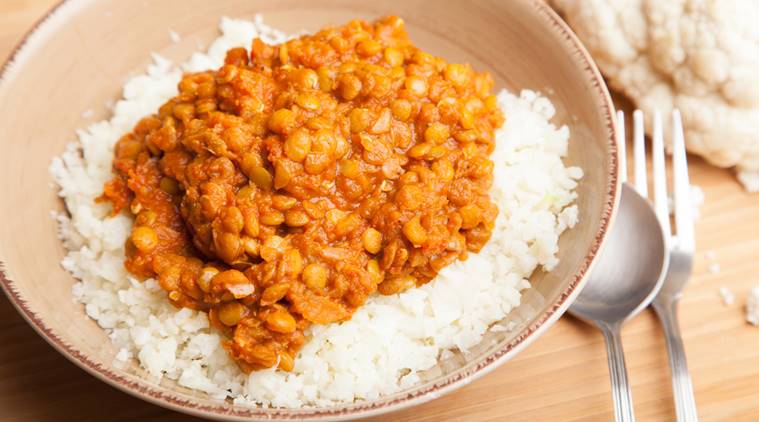📣 For more lifestyle news, click here to join our WhatsApp Channel and also follow us on Instagram
Food scarcity is real and a staple diet of dal-chawal can save us: Study
The EAT–Lancet Commission addresses the need to feed a growing global population a healthy diet while also defining sustainable food systems that will minimise damage to our planet.
 The one thing that is going to save the world from starvation is India’s humble ‘daal-chawal’ or the steamed rice and lentils. (Source: Getty/Thinkstock Images)
The one thing that is going to save the world from starvation is India’s humble ‘daal-chawal’ or the steamed rice and lentils. (Source: Getty/Thinkstock Images)
A study published in The Lancet said that the world is going to suffer from a food crisis as serving three billion people on earth is going to be a tough task. However, resorting to the staple Indian diet of dal-chawal or steamed rice and lentils can save us from starvation.
According to the report, “the diet that can save the world should look something like this – porridge for breakfast; rice, lentils, and vegetables for lunch and dinner; and a single hamburger every few weeks as a treat”.
Lentils with a side of rice: the save-the-world diet?https://t.co/d8ezljbuSB pic.twitter.com/1OygnS8nxJ
— AFP news agency (@AFP) January 17, 2019
According to the official site, the Commission quantitively describes a universal healthy reference diet, based on an increase in consumption of healthy foods (such as vegetables, fruits, whole grains, legumes, and nuts), and a decrease in consumption of unhealthy foods (such as red meat, sugar, and refined grains) that would provide major health benefits, and also increase the likelihood of attainment of the Sustainable Development Goals.
“The intake of some foods such as meat and sugar needs to fall by half by 2050 to reduce the global burden posed by the three billion people on Earth who are either over- or under-fed. While richer nations must drastically slash their meat consumption, regions such as South Asia currently experience a dearth of calories and protein from a lack of red meat. Livestock farming is catastrophic for the environment, producing up to 18 percent of global greenhouse gases and contributing to deforestation and water shortages”, the study states.
“Eating less red meat –- which is mostly a challenge in changing human behaviour –- is crucial. But something equally dramatic that is less talked about is the reduction in conventional cereal and tubers, and the transition to nuts, fruits, vegetables and beans as a principal source of nutrition”, said Johan Rockstrom, director of the Potsdam Institute for Climate Change Impact Research and one of the authors, told AFP.
📣 For more lifestyle news, click here to join our WhatsApp Channel and also follow us on Instagram

Photos



- 01
- 02
- 03
- 04
- 05






















